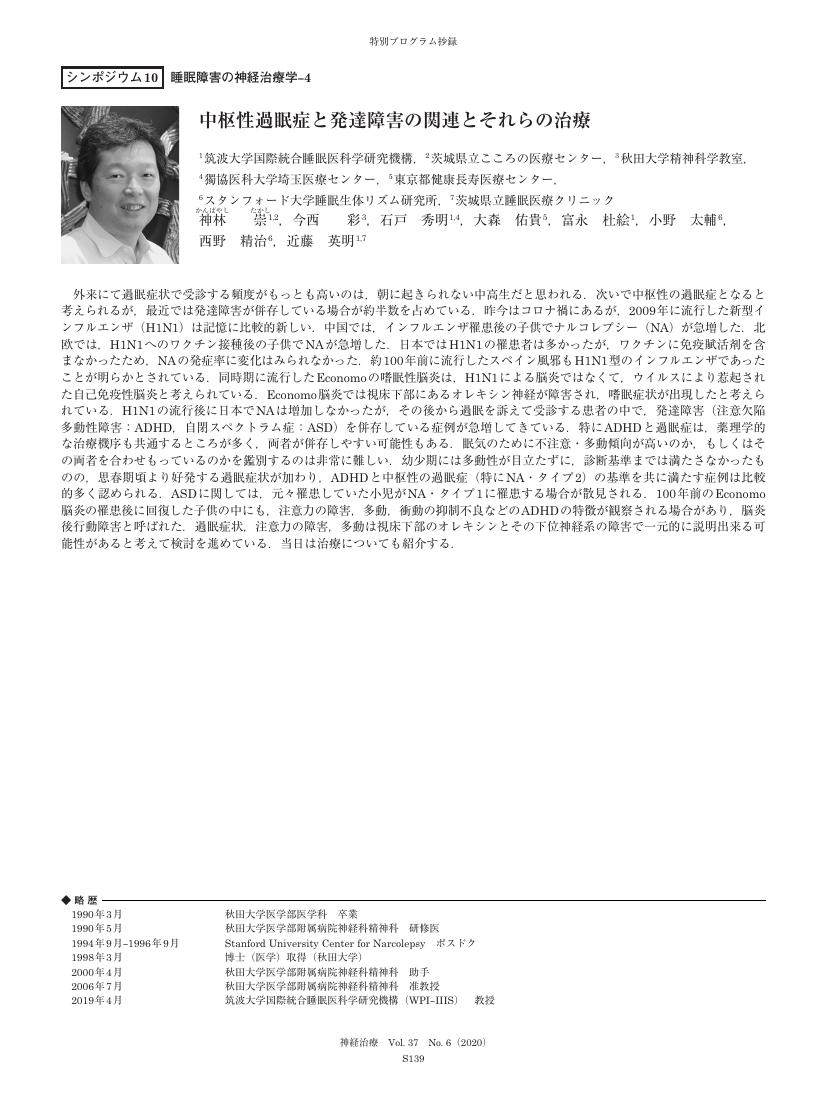34 0 0 0 OA 夜間睡眠の延長と睡眠相後退症候群に対するaripiprazoleの有効性の検討
- 著者
- 神林 崇 大森 佑貴 今西 彩 高木 学 佐川 洋平 筒井 幸 竹島 正浩 小野 太輔 塩見 利明 清水 徹男
- 出版者
- 日本神経治療学会
- 雑誌
- 神経治療学 (ISSN:09168443)
- 巻号頁・発行日
- vol.34, no.4, pp.406-410, 2018 (Released:2018-02-20)
- 参考文献数
- 6
Delayed sleep phase disorder (DSPD) comprises a persistent or recurrent pattern of sleep disturbances, sleep disruption that leads to insomnia and/or excessive daytime sleepiness, and impaired functioning in social, occupational, or other spheres. Three techniques are typically used to treat DSPD : chronotherapy, phototherapy, and exogenous melatonin administration. Antipsychotics have not been reported in the treatment of DSPD, aripiprazole (APZ), which is a second generation antipsychotic, manifests a novel mechanism of action by serving as a partial agonist of D2 receptors. Depression is reported to be the most common psychopathology associated with DSPD, and APZ is reported to be effective in major depressive disorder as adjunctive therapy. Therefore, we speculated that APZ might be effective to treat DSPD, and we observed how APZ works for the treatment of DSPD.Methods : 18 subjects (including 7 women) who are 14–48–year–old (the average is 31.6) were included. The patients were prescribed 0.75–4.5mg APZ at once a day.Results : We prescribed 1.5–3.0mg/day of APZ, all subject reduced total sleep time (9.6 +/− 2.3h → 7.8 +/− 2.0h, p=0.03), many cases got up earlier (9.1 +/− 1.9h → 6.7 +/− 1.4h, p=0.005) in the morning and advanced their sleep phase within one week. The sleep onset was not significantly changed (23.5 +/− 2.0h → 22.9 +/− 1.9h, n.s.).Conclusion : Low dose of APZ would reduce nocturnal sleep time in the subjects who had prolonged sleep time and DSPD symptoms. The mechanism of action would be dopaminergic up regulation due to dopamine D3 agonistic activity. Since it is difficult for physicians to treat prolonged sleep time and DSPD symptoms, this medication would become a new therapeutic tool for these patients.

